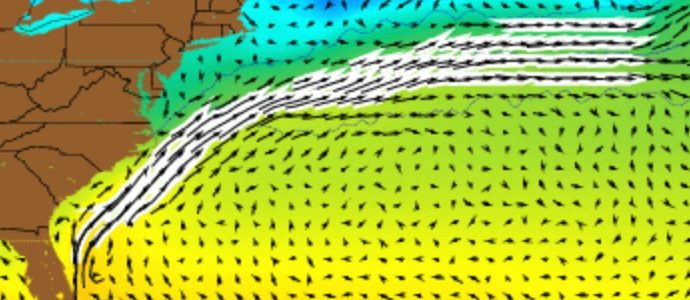Displacement of the North Atlantic’s Gulf Stream Linked to Rapid Ocean Warming
Researchers have discovered that as global warming causes the North Atlantic’s Gulf Stream to migrate further north, it blocks the flow of water flowing from the Arctic via the Labrador Current, a situation resulting in detrimental changes in the environment in the waters off of the North American Shelf. Typically,read more
